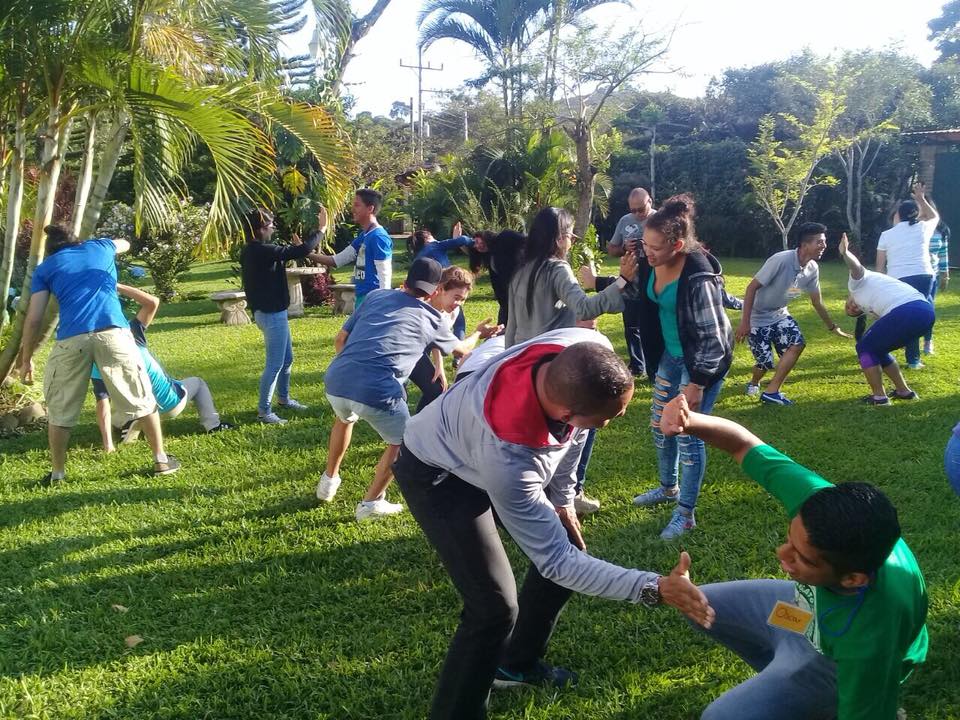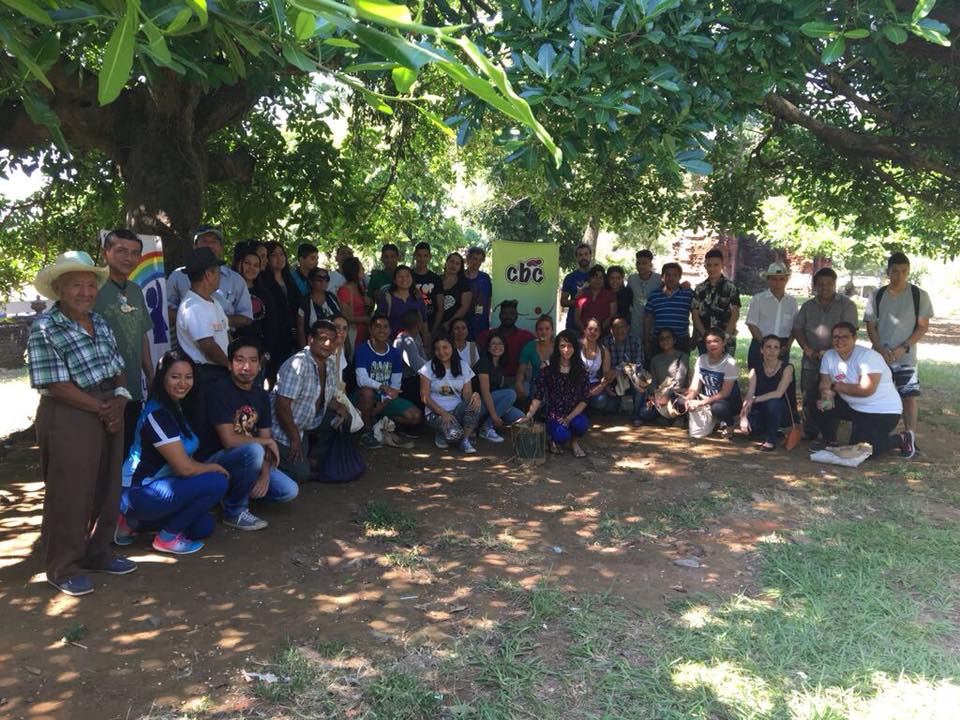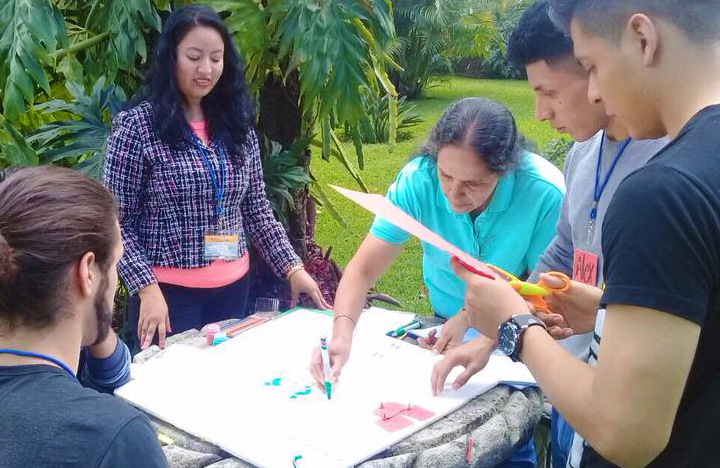
A Latin American and Caribbean Advanced Workshop on Ethics Education for Children took place in El Salvador for participants who are currently implementing the Learning to Live Together Programme in Colombia, Dominican Republic, Ecuador, El Salvador, Guatemala, and Panama. The workshop included youth and adults from the Global Network of Religions for Children (GNRC) and participants from Christian, Buddhist, indigenous and secular partner organizations.
The workshop was organized by Centro Bartolomé de las Casas – San Salvador, member of the GNRC, within the framework of the two-year project titled Bridging the Gap, with the technical collaboration of Arigatou International Geneva.
During the first day, participants learned about each other and shared their experiences of implementation in the particular and often challenging contexts they live in. The second and third days were dedicated to explore and learn about the types, causes, and consequences of violence affecting children, and our role as educators and young leaders responding and preventing it.
The young leaders and facilitators underlined the importance of being role models, continuing being “seeds of hope,” and creating transformative and safe spaces for and with children. The group had the opportunity to visit the sacred place of a Nawat indigenous community in Izalco, where a special ceremony was organized for the group.
Participants had the opportunity to learn about the history of this indigenous community, particularly on their identity and on the massacre of 1932 where about 35,000 of indigenous people of that community were assassinated.
The community shared how they have recreated the narrative of this massacre, and talked about their healing process and their capacity to reconcile and transform conflict. The group joined the conversation and shared stories of healing and reconciliation from their own countries where indigenous communities have a strong presence as well. The day continued with participants reflecting on this experience and further exploring the causes and consequences of conflict, violence, and injustices, and our capacity to destroy, transform and recreate. The day ended with a cultural evening where participants shared traditional music, dances, stories, and food from their countries.
The fourth day was dedicated to an intergenerational dialogue facilitated by two young people, Anginiela Barrios and Eduardo Ortiz and two adults, Regina Hernandez and Marco Laguatasi.
In an environment of deep trust and respect, young people and adults shared personal challenging stories and experiences of violence and resilience showing examples of the creation of new narratives and empowerment. Participants underlined the importance of a loving family for a sound development and the consequences absent parents in children’s lives. Participants stressed examples of how local organizations have helped them find their place, having their voices heard and taken into account, and how they supported and empowered them to become more confident, raise their self-esteem and ability to transform themselves, believing that “yes, we can”. Young participants shared how the implementation of the LTLT encouraged them to “do more, and do better” for their community and for other children.
During the afternoon participants went to a local labyrinth where organized in intergenerational groups, they had to find the way-in and exit of the labyrinth. As they were walking, they were invited to reflect about their role – as youth and adults – in building a culture of peace and how to generate more spaces for children and youth participation in the school, family, and community.
The last day was dedicated to connect all the experiences of the previous days with the elements of the Ethics Education Approach. Participants had the opportunity to design and share their action plans. The workshop ended with a closing ceremony led by Ms. Andrea Flores and Mr. Walberto Tejeda, Director of Centro Bartolomé de Las Casas.
The facilitator’s team of the workshop was composed by Ms. Andrea Flores, LTLT Trainer and Coordinator of “Bridging the Gap”, Mr. Rutílio Delgado, LTLT Facilitator and staff at Centro Bartolomé de Las Casas, and Ms. Vera Leal, Ethics Education Program Officer at Arigatou International Geneva.
We thank the co-organizers for their commitment and collaboration, and the attendants for their dedication and enthusiastic participation.

